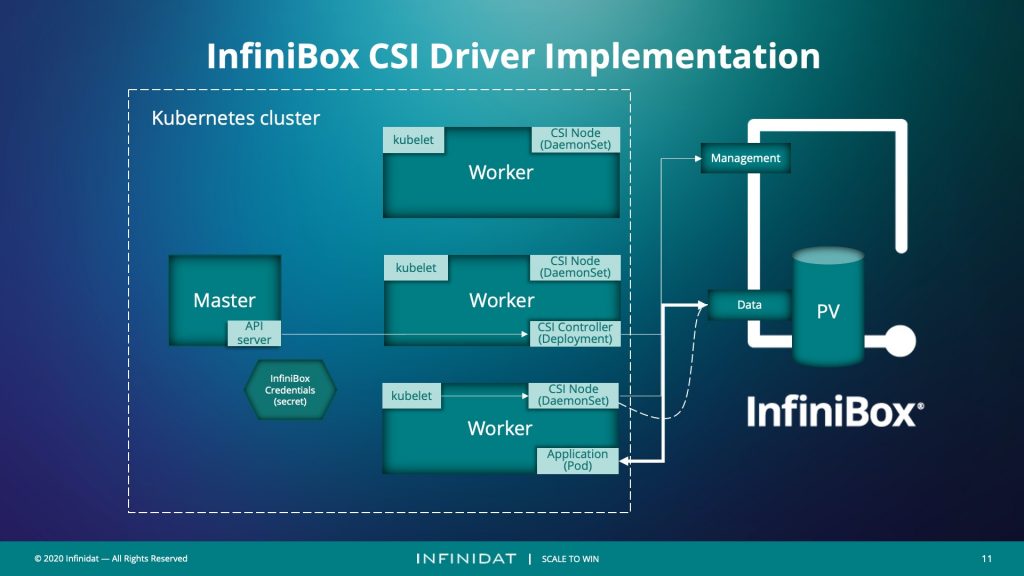Infinidat Adds CSI Support to Storage Array
Infinidat, a provider of on-premises storage arrays, announced this week its implementation of the Container Storage Interface (CSI) for Kubernetes clusters is now generally available.
Erik Kaulberg, vice president at Infinidat, says it’s increasingly clear Kubernetes is gaining traction in on-premises IT environments. The challenge now is to enable containerized applications to scale out without sacrificing application performance, he says.
Infindat addresses that issue, he says, by employing machine learning algorithms to optimize the storing of data across DRAM, flash memory and hard disk drives within the storage array. That approach makes it possible to deploy hundreds of thousands of persistent volumes per InfiniBox using iSCSI, NFS or Fibre Channel protocols.
IT teams can then manage multiple InfiniBox arrays from within a single Kubernetes cluster, including being able to encrypt data at rest and manage snapshots and clones. Infinidat also provides access to a fabric that enables IT organizations to employ public clouds as an extension of the platform to, for example, backup and recover data when needed.
Infinidat is seeing containers and Kubernetes deployed on a mix of virtual machines and bare-metal servers, Kaulberg says, noting the InfiniBox CSI Driver has been certified to be compatible with Kubernetes distributions from Red Hat and VMware.
The rate at which stateful containerized applications are being deployed in production environments is steadily increasing. As such, providers of storage arrays are now all racing to support CSI, which provides a standard mechanism for connecting external storage arrays to a Kubernetes cluster. The challenge IT organizations face is CSI continues to be a work in progress; as such, not every CSI feature included in the open source Kubernetes project is equally mature.
Nevertheless, Kaulberg says it’s clear Kubernetes essentially is emerging as the new operating system in the enterprise, with vendors such as Infinidat curating which CSI features to support depending on their suitability for the enterprise.
It’s too early to say which vendors will win the container storage battle in on-premises IT environments. Incumbents have an obvious advantage, but anytime a major new platform is introduced many enterprises will, at the very least, consider their options. Enterprise IT organizations have already deployed more than 6 exabytes of data on Infinidat arrays, so Kaulberg says Infinidat will benefit from being a known quantity among IT operations teams.
In the meantime, IT teams should expect to encounter more I/O contention when deploying microservices-based applications built using containers. It’s not uncommon for hundreds of microservices to simultaneously try to access the same pool of data. Ideally, that data would be sitting in some form of cache memory because many of those microservices will be latency-sensitive. IT teams could spend an inordinate amount of time trying to optimize storage systems to meet those requirements. Conversely, they could allow a modern storage system infused with machine learning algorithms to figure it out for them. Given the overall complexity of IT environments these days, the most precious commodity in all of IT is now time.





